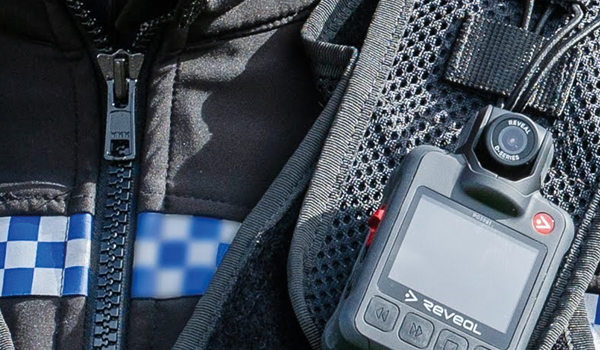Cheshire adopts solar powered technology
Cheshire Constabularys police station are going green with the introduction of a new solar panel system which means they will get most of their energy from the sun.

Cheshire Constabularys police station are going green with the introduction of a new solar panel system which means they will get most of their energy from the sun.
Nantwich is the first police station in the North West to take advantage of the new technology. Middlewich will soon follow suit.
The computers, CCTV system and even small electric items at Nantwich are all now powered directly from the sun, cutting emissions and reducing bills.
Project lead Keith Cozens explained: We started the project back in June but had to apply for planning permission to fit the panels to the roof of the building.
The panels at Nantwich and Middlewich were to trial the system – now we know it is working we are hoping to roll it out to seven more constabulary buildings across Cheshire. The idea is to save money and reduce carbon emissions.
He said that using solar power doesnt rely on blisteringly hot sunny days.
The panels dont need sunlight, they just need daylight. Even on a cloudy day they still get what they need to power the building, said Mr Cozens
The panels at Nantwich cost around £11,000 to install and were funded via the North West Improvement and Efficiency Partnership (NWIEP). It is expected that the panels will have paid for themselves within five years.
NWIEP has been keen to support innovative projects that not only deliver efficiencies for the public sector but also generate data and evidence that others considering similar projects can learn from.
We felt that Operation Greenhouse fitted well with our wider work supporting better asset management in the sector across the North West, said Gillian Bishop, chief executive of NWIEP
Michael Darby, the Cheshire Police Authority member responsible for looking at carbon management issues within the force, said: The authority has supported the initiative since we first heard about it. Its a great way to improve the constabularys green credentials and save money.
It is hoped that the introduction of solar technology to provide hot water and electricity, along with improved electrical connections and insulation, will lead to energy efficient buildings reducing costs. It is also anticipated that the constabulary will benefit financially via the Feed In Tarrifs and the Renewable Heat Incentives, payments, which are in addition to savings on the bills.
In initial discussions with Climate Change Northwest, the constabularys environment officer Karen Wickstead said: For a while now, the Carbon Management Team has been trying to secure funding from different sources. We had suggested we would like to create an eco-friendly police station, but this was not specific or original enough to fit the criteria for funding. However, our plan for these two police stations is to make them self sustainable through renewable energy which we believe has not been done before.
We know that in other forces they have introduced solar panels to the roofs of their buildings, but no one that we know of has ever looked at one building and implemented a number of projects at the same time.
The team looked at 40 buildings across the force area before deciding that Nantwich and Middlewich would be the most viable to convert.
There are issues with the amount of sunlight, the pitch of the roof and whether there are any trees or buildings nearby which cast a shadow, explained Ms Wickstead. We also needed the buildings to be small enough to finance bigger buildings would cost more and might not be financially viable. And we had to consider the future of the buildings the constabulary will be selling off some of its assets in the next few years and we did not want the work to be done on something we would not be able to get the benefit from.
One of the key conditions of the grant funding from the NWIEP is that the constabulary shares any information and learning that it gains through the project with other public sector bodies, such as local au



